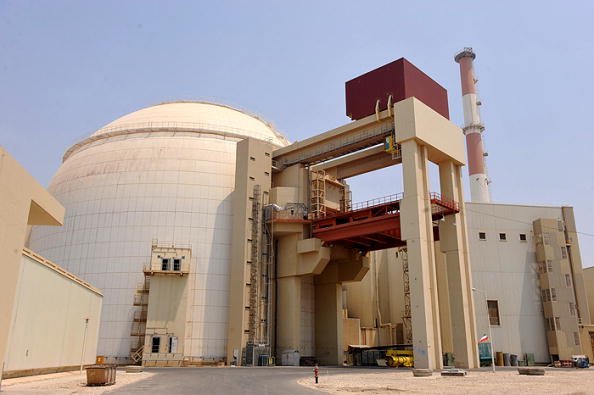Before the nuclear deal was signed, the freezing of Iranian assets was incomplete, so the loosening of restrictions on these assets will have less impact than implied by past and current arguments. The Obama administration has long overstated the extent to which economic sanctions froze Iranian assets and the impact these actions had on the… Keep reading →
Sanctions
Iran’s ‘Frozen’ Assets: Exaggeration On Both Sides Of The Debate
By Patrick ClawsonSign up and get Breaking Energy news in your inbox.
We will never sell or share your information without your consent. See our privacy policy.Sanctions Round Up: Second Quarter 2015
By Brian Burke, Stephen Fishbein, Mark Lanpher, Christopher LaVigne, Danforth Newcomb, Richard Price, Barnabas Reynolds, Philip Urofsky | Shearman & Sterling LLPEnergy News Roundup: OPEC To Maintain Current Policy, Fossil Fuels Dominant in Canada & Iran’s Sanctions Remedy
By Conor O'SullivanOPEC have pledged to stay the course following a meeting at their headquarters in Vienna on Firday — maintaining with a targeted production level of 30 million barrels per day. “The news was, frankly, just as broadly expected — thanks to the reasonably successful fruits of what has been widely described as a strategy to hold on to market share. “There’s… Keep reading →
Framework For Nuclear Agreement With Iran Announced—But Still A Long Way To Go
By Stephan Becker, Nancy Fischer, Aaron R. Hutman, Stephanie Rohrer, Christopher R. Wall | Pillsbury Winthrop Shaw Pittman LLPOn April 2, 2015 representatives of the United States, Britain, France, Germany, China and Russia (collectively, the “P5+1” countries) announced that they had agreed with the Islamic Republic of Iran on the Parameters for a Joint Comprehensive Plan of Action Regarding the Islamic Republic of Iran’s Nuclear Program (the “Parameters” or “Framework Agreement”).
Congressional Panel Approves Legislation On Iran Nuclear Deal
By Katrina Carroll, David Horn, Ronald Meltzer, Marik String | WilmerHaleYesterday, the Senate Foreign Relations Committee unanimously passed legislation that would allow Congress to review—and potentially block—any final deal reached with Iran over its nuclear program. The Iran Nuclear Agreement Review Act of 2015 (S.615) would also prevent the Obama Administration from immediately suspending sanctions against Iran during an initial 30-day congressional review period.
P5+1 Reach Framework Agreement With Iran
By David J. Levine | McDermott Will & EmeryAs widely reported, the United States, China, France, Germany, Russia and the United Kingdom (the P5+1), coordinated by the European Union’s High Representative, reached a Framework Agreement with Iran on April 2, 2015, pursuant to which the parties will work through June 2015 to craft a Joint Comprehensive Plan of Action (JCPOA).
Energy News Roundup: Libya Attacks Spark Oil Surge, EU Sanctions & Hawaii’s Solar Obstacles
By Conor O'SullivanOil prices increased to their highest in nearly two months on Monday, following concerns over escalating conflict with Islamic State militants in Libya and threats to withhold exports from Iraq’s semi-autonomous Kurdish region. “Egypt bombed Islamic State targets inside Libya on Monday and Cairo renewed calls for a U.S.-led coalition to confront militants there a… Keep reading →
U.S. Enacts New Russia Sanctions Law; President Obama Imposes Trade/Investment Embargo on Crimea
By John Burke, Matthew Caligur, Casey Holder, Mark Joye, Melvin Schwechter | BakerHostetlerOn December 18, President Barack Obama signed the Ukraine Freedom Support Act of 2014 (UFSA) into law. Passed by the Congress in response to Russia’s support of the pro-Russian insurgency in eastern Ukraine, it authorizes expanded sanctions on Russia and the provision of certain types of weapons to the government in Kiev. This new wave of potential sanctions places even more pressure on Russian President Vladimir Putin amid dropping global oil prices and the fall in the value of the Russian ruble. On December 15, Russia’s central bank raised its key interest rate from 10.5 to 17 percent, the largest single increase since 1998 and the sixth increase this year.
The Russian economy is heavily dependent on oil – prices of which have been falling precipitously – and sanctions imposed by western governments in retaliation for Russia’s aggressive action in Ukraine are putting extreme pressure on the country’s currency. There is concern the Russian government and/or Russian companies lack sufficient currency reserves to pay debt… Keep reading →
US Clarifies Sanctions Provisions and US Senate Passes a Bill to Codify and Expand Sanctions
By Laura Brank, Darshak Dholakia, Miriam Gonzalez, Hrishikesh Hari, Jeremy Zucker | Dechert LLPAs noted in previous updates, the United States and European Union continue to impose sanctions against Ukrainian and Russian individuals and entities as a result of the turmoil in Ukraine. On 11 December 2014, the US Senate passed the Ukraine Freedom Support Act of 2014 (S. 2828) (hereinafter the “Act”), which would significantly expand the scope of US economic sanctions against Russia if it became law. In addition, the US Treasury Department’s Office of Foreign Assets Control recently released additional guidance regarding the scope of existing US sanctions involving Ukraine and Russia.









